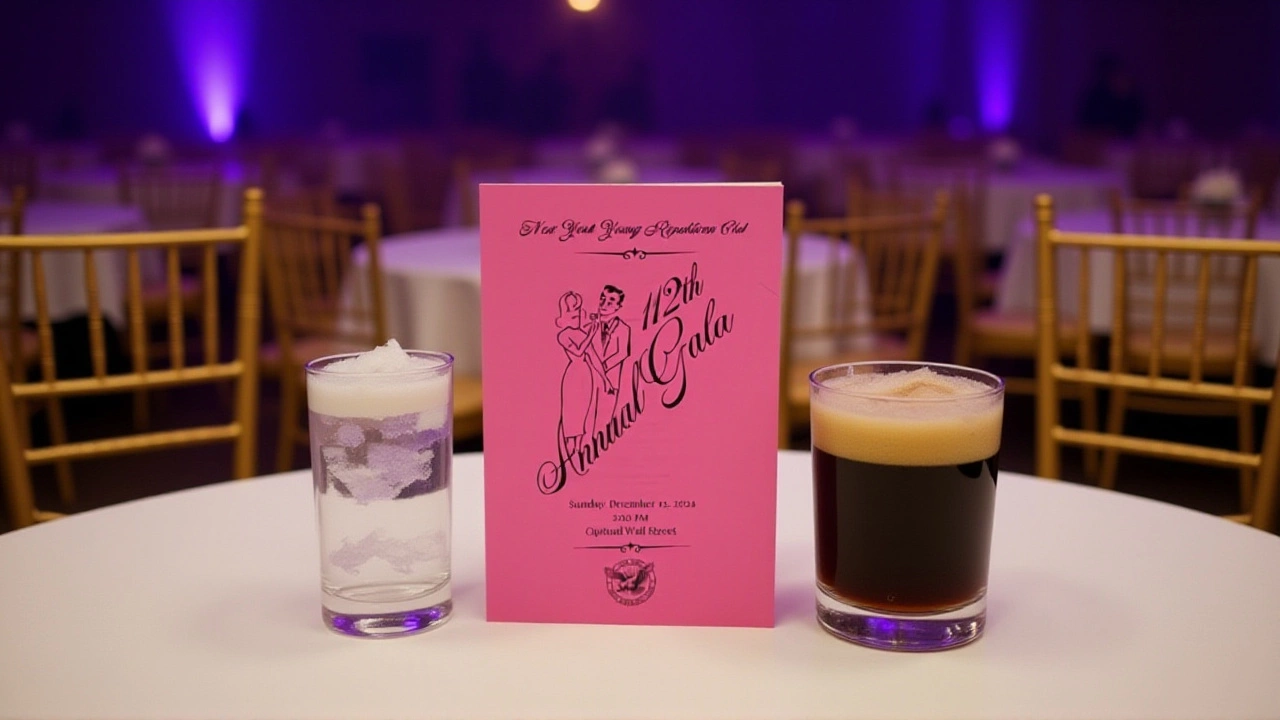When Bhavik Lathia, a communications consultant and former digital director for the Wisconsin Democratic Party told The New York Times on April 21, 2025 that Democrats were stuck in a "respectability prison," he signaled a strategic pivot toward a more combative, profanity‑laden style he dubbed “dark woke.” The phrase, which first erupted on X (formerly Twitter) in January 2025, merges meme culture with a readiness to weaponize controversial language against Republican opponents, especially former President Donald Trump and his allies.
What Is “Dark Woke” and Why It Matters
The #darkwoke meme started as a series of jokes that celebrated—or at least reveled in—the imagined downfall of Trump supporters. By March 2025, the hashtag had amassed over 2 million posts, many featuring graphic language, satirical cartoons, and outright threats. While critics called it "dangerous rhetoric," proponents argue it flips the script: Republicans have long used shocking sound bites to dominate headlines; "dark woke" aims to deliver the same punch for the left.
According to a May 19, 2025 report in Colorado Arts and Sciences Magazine, the meme’s rise coincided with a broader frustration among progressive operatives who feel traditional civility no longer cuts through the noise of 24‑hour news cycles.
Key Players Driving the Shift
Beyond Lathia, a handful of elected officials have embraced the new tone. In April 2025, Jasmine Crockett, the Democrat representing Texas’s 30th congressional district, hurled a colorful insult—"bleached‑blonde, bad‑built, butch body"—at Rep. Marjorie Taylor Greene during a floor debate. Crockett later justified the remark as a “necessary response to endless GOP obstruction.”
Brooklyn councilman Chi Ossé echoed the sentiment, quoting an aide to Mayor Eric Adams that "when they go low, you gotta dig for oil." Ossé’s words, shared with The New York Times, signal an institutional acceptance of the more abrasive playbook.
Even former First Lady Michelle Obama’s iconic "when they go low, we go high" line, famously delivered at the 2016 Democratic National Convention, is being re‑examined as a relic of a bygone era of restrained discourse.

Survey Data Shows How Americans Label “Woke”
A comprehensive survey conducted by the University of Colorado Boulder’s Department of Political Science between March 15 and April 10, 2025 polled 2,500 registered voters nationwide. Respondents were asked to categorize various policies, movements, and public figures as either “woke” or “anti‑woke.”
- 87.4 % of those identifying as Democrats considered civil‑rights‑linked initiatives (e.g., the 1954‑1968 Civil Rights Movement, Black Lives Matter, pro‑choice legislation, LGBTQ+ rights) “woke.”
- 92.1 % of Republican respondents labeled conservative positions—such as book bans in public schools, reduced U.S. military aid to Israel, and stricter immigration policies—as “anti‑woke.”
- 63.2 % of Republicans, 89.7 % of Democrats, and 71.5 % of independents agreed on specific entities (e.g., the Proud Pride, KKK) being “anti‑woke.”
- Surprisingly, only 48 % of those surveyed placed Florida Governor Ron DeSantis in the “anti‑woke” camp, despite his 2024 campaign slogan “Florida: where woke goes to die.”
Lead researcher Dr. VanDreew noted that partisanship heavily colored the labels: "Democratic‑aligned causes are almost automatically tagged ‘woke,’ while Republican‑aligned stances get the anti‑woke stamp, regardless of substantive policy overlap."
Reactions Inside the Democratic Party
The Democratic National Committee, headquartered at 430 South Capitol Street SE, Washington, D.C., declined to comment when approached by Fox News Digital on April 22, 2025 at 3:45 PM Eastern Time. Insiders say the silence reflects an internal debate: some senior strategists fear the “dark woke” approach could alienate swing voters in suburban districts, while others argue that the old civility playbook is already losing ground.
Political analyst Megan Torres of Brookings Institution warned, "If Democrats swing too far into profanity, they risk reinforcing the narrative that the left can’t engage in reasoned debate. Yet, the data shows a sizable portion of the electorate is hungry for a more forceful counter‑narrative."

Implications for Upcoming Elections
As the 2026 midterm cycle looms, the “dark woke” strategy could reshape campaign tactics in battleground states like Pennsylvania, Arizona, and Georgia. The approach may energize the base—especially younger voters who live and breathe meme culture—but could also give GOP media machines fresh material to paint Democrats as "outrageous."
In Texas, where Representative Crockett’s remarks sparked both applause and backlash, early polling indicates her district’s Democratic margin narrowed from 15 % in 2022 to just 6 % in a recent July 2025 poll. Meanwhile, in New York City, Councilman Ossé’s “dig for oil” mantra seems to have bolstered progressive turnout in the 36th Council District, with a 12 % increase in primary participation compared to 2023.
Ultimately, the experiment with “dark woke” may serve as a litmus test for how far political communication can stretch before it backfires. If voters respond positively, we could see a permanent shift toward edgier, meme‑driven messaging across the aisle.
Frequently Asked Questions
What exactly does “dark woke” mean?
“Dark woke” blends meme‑fuelled sarcasm with overtly confrontational language, targeting political opponents—especially Republicans—through profanity, graphic jokes, and a willingness to cross traditional civility norms. It emerged on X in early 2025 as a reaction to the perceived success of GOP shock tactics.
Who are the main proponents of this strategy?
Key figures include communications consultant Bhavik Lathia, Texas Rep. Jasmine Crockett, Brooklyn Councilman Chi Ossé, and, indirectly, Mayor Eric Adams’s inner circle. Their public statements in April 2025 signaled an organized shift away from the “high‑road” rhetoric of the past.
How do voters currently view “woke” versus “anti‑woke” labels?
A University of Colorado Boulder survey (2,500 voters, March‑April 2025) found Democrats overwhelmingly label civil‑rights and LGBTQ+ issues as “woke,” while Republicans label conservative stances as “anti‑woke.” Notably, 63 % of Republicans agreed with Democratic classifications on several contentious topics, indicating some cross‑partisan overlap.
What risks does the “dark woke” approach pose for Democrats?
Critics warn the strategy could alienate moderate voters and reinforce GOP narratives of Democratic extremism. Early polling in districts like Texas’s 30th shows a narrowing Democratic edge after profanity‑laden attacks, suggesting the approach may be a double‑edged sword.
Will “dark woke” influence the 2026 midterms?
Analysts expect the tactics to seep into campaign ads, social‑media outreach, and floor speeches, especially in swing states. If the style galvanizes the base without repelling the center, it could become a defining feature of the Democratic playbook heading into 2026.
